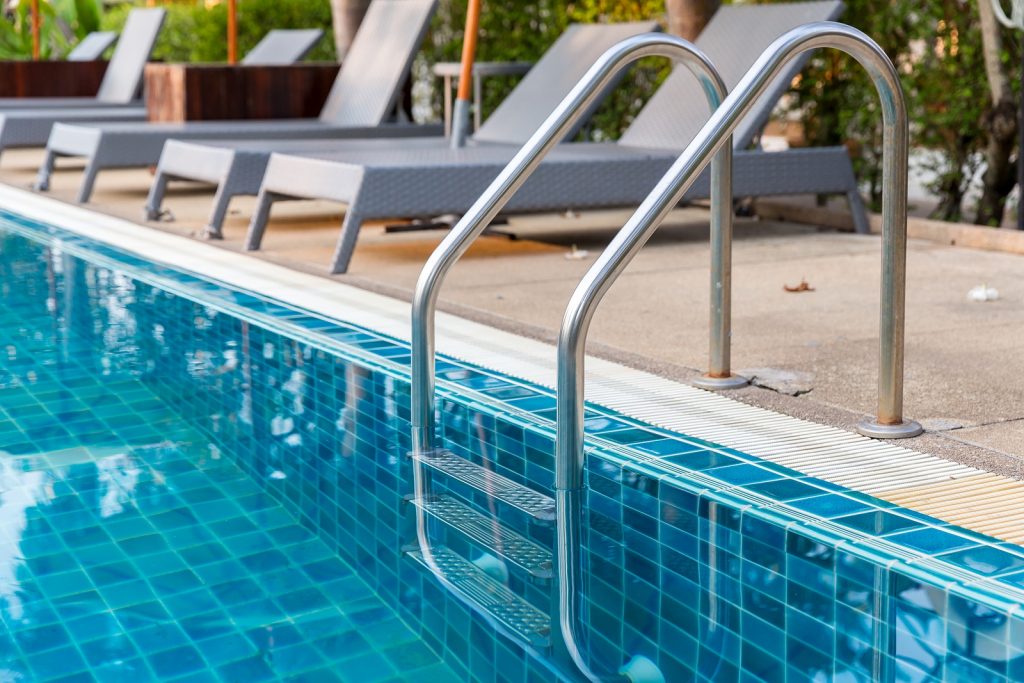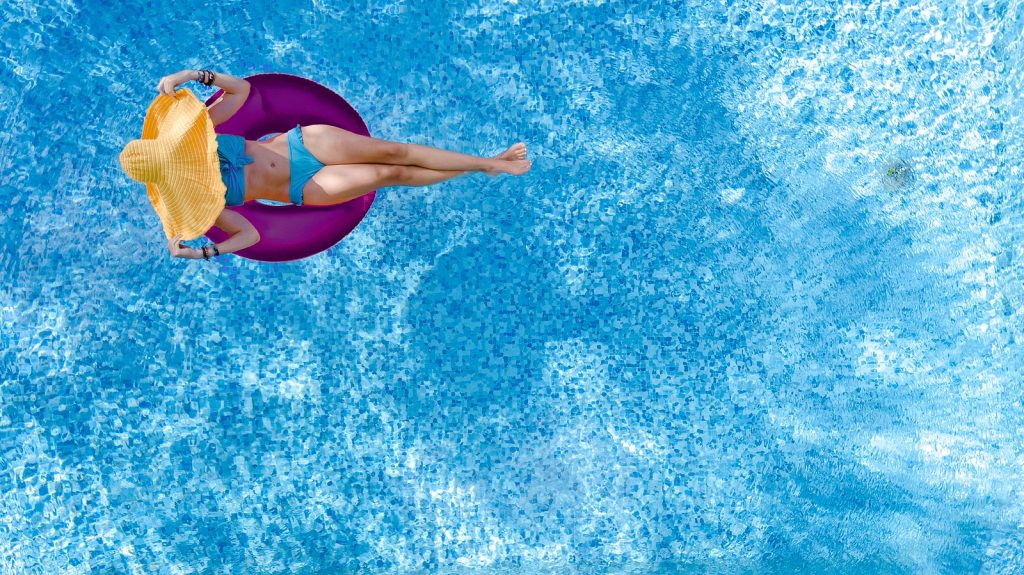Water Testing – Essential Knowledge for a Pool Technician Course
Water testing is an important and essential part of maintaining swimming pools and spas. In commercial applications, a DPD (diethyl-p-phenylenediamine) reagent is used to measure either total or free available chlorine. There are four basic testing methods used. These are colorimetric, titrimetric, turbidimetric, and electronic. Colorimetric tests use a color comparator test and are the most common method. The titration method does not have the same visual uncertainty that a colorimetric test has. Turbidimetric measures the number of solid particles suspended in the water sample. Electronic testing can be even more accurate than the titration method by using equipment that removes the inaccuracy caused by lighting and the human eye. In the blog, we will focus on Colorimetric testing as it pertains to a pool technician course.
Colorimetric Test Block
Test kit manufacturers formulate the DPD reagents in a variety of ways. Liquid, tablet, and powder tests offer a reagent DPD #1 as the first step in chlorine testing. Others offer liquid reagents DPD #1 and #2 as the first step for chlorine testing. Both test protocols give free chlorine as a result. When a CPO® adds DPD #3 to a water sample already indicating free chlorine, the reaction will give Total Chlorine as a result. This will help you also obtain a Combined Chlorine reading.
Test kits may vary but most test blocks measure concentrations up to 5.0 ppm of chlorine. Anything above this limit typically requires dilution of the water sample, unless other methods are used like the photometer or FAS-DPD.
Bromine
To pass a pool technician course, you will need to understand how bromine factors into water testing. Total bromine can be determined using standard chlorine testing procedures. To see the total bromine level in a sample that contains bromine, the free chlorine level typically should be multiplied by 2.25. Many test kit manufacturers will provide a calibration for bromine on the test block comparator.
Bromines react with DPD #1 and #2 similarly to both hypobromous and hypochlorous acids, meaning combined bromine is indistinguishable from free available bromine. This means you can only test for total bromine residuals.
False Readings
Understanding false readings is an important part of passing a pool technician course and becoming a CPO®. At free chlorine levels of 10 to 15 ppm and normal pH levels, the chlorine content of the water sample may cause the coloration to be less intense or colorless. This can lead a CPO® to incorrectly judge the test for chlorine as having no chlorine and add more chlorine than is needed. False readings can also occur when a high pH ‘bleaches out’ the sample, resulting in a coloration intensity seemingly within the correct levels, when in fact they are much higher. Another false reading possibility occurs when the combined chlorine is very high. This can result in some DPD becoming oxidized, giving off a red color. If no DPD is added to the solution but over time the color slowly develops, you may have a high chlorine level. To avoid making mistakes due to false readings, there are methods to double-check when you find a chlorine result of zero. Add an additional drop or tablet of DPD to the sample – if the temporary pink color appears, the sample water has a high chlorine level and dilution is necessary. If no color develops, the chlorine level is actually zero.
Expert Pool Technician Course
The best way to learn about residential and commercial pool care is through CPO® certification. Pool Operation Management offers award-winning CPO® certification courses to give you the most comprehensive education in everything involved with pool operation. Over a two-day pool technician course or during online training, our experienced professionals will not only help you get certified, but you will acquire real-world knowledge to aid you in your career of pool operation.
We also offer professional pool maintenance for both residential and commercial pools, pool operation consulting, and can even act as an expert witness in pool-related legal cases. To start your CPO® certification courses or use our many services, contact Pool Operation Management today.








